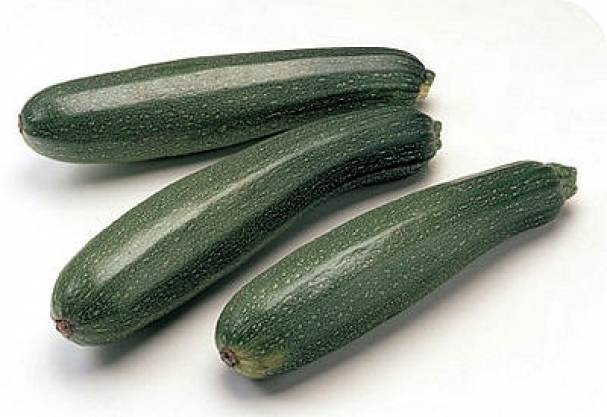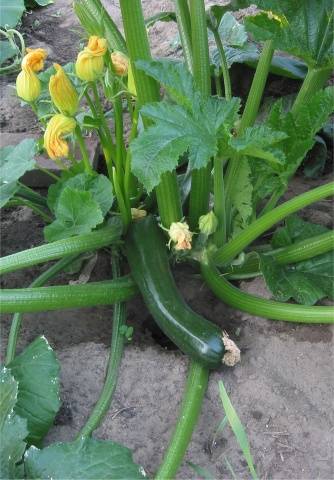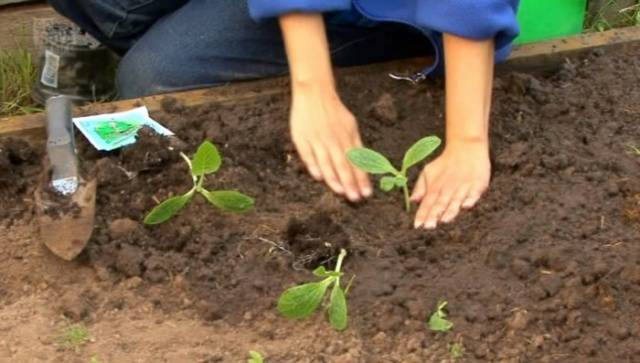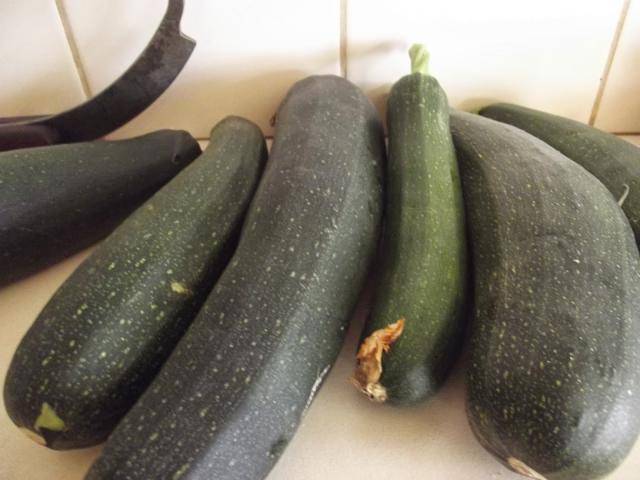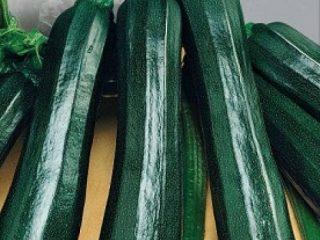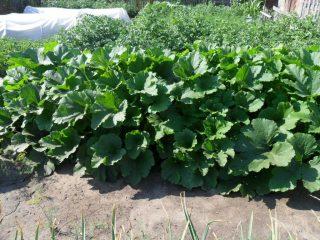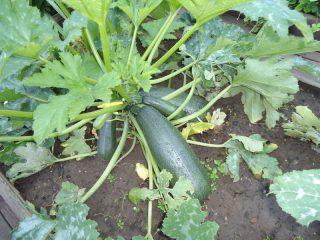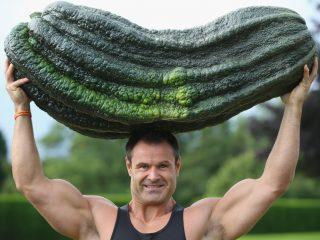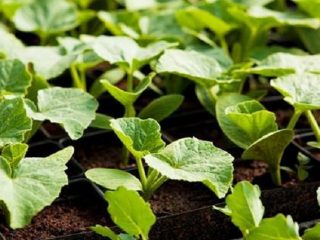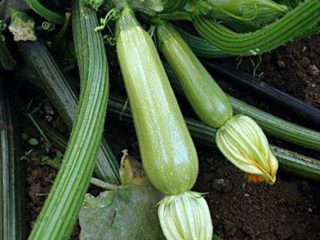Zucchini Diamant is a widespread variety in our country, originally from Germany. This zucchini has become so popular due to its endurance to waterlogging and insufficient soil moisture, and its excellent commercial characteristics.
Description of culture
The Diamant variety is a high-yielding variety, since one bush can produce up to 20 zucchini per season. It is a semi-growing bush with many strong dark green leaves. Diamant's leaves do not differ with pronounced spotting, but they have strong cuts on the sides.
The culture bears fruit after 40 days after the first shoots. Zucchini Diamant are cylindrical in shape and up to 22 cm long. One mature zucchini weighs approximately 1 kg. The color of the ripe fruit is dark green with frequent stripes and spots along the entire length, the skin is thin. Underneath is a strong white pulp with elliptical beige seeds inside. Diamond perfectly tolerates transportation and is well stored.
Young zucchini can be eaten raw, more mature ones require heat treatment in the form of stewing or frying.
Growing varieties
Before planting, the seeds of the Diamant squash must be soaked in a damp cloth, where they will open slightly and show green sprouts.
Diamant is sown in open ground in May - early June in rows according to the following sowing pattern: 70 * 70. The depth of planting a zucchini seed in the soil is about 6 cm. Before immersing the seeds in the hole, spill the bottom of it with warm water.
It is not necessary to sow zucchini directly into open ground, you can prepare seedlings in advance, they do this in early April. And then, within 25 days, it is planted in the garden. The only thing you need to make sure that the soil temperature does not drop during and after planting below 15 degrees. The best place for planting zucchini Diamant will be a garden bed where early vegetables - carrots, potatoes or other root vegetables - were previously fruitful.
After planting, the bed is covered with a single layer of film. You can use black film. It will accumulate solar heat, due to this, the zucchini will rise earlier.
After the sprouts of the zucchini have sprouted, holes need to be made in the film and released. We check each bush and leave only the one that is better in characteristics and stronger in appearance in one hole.
In order for the plant to give a high and high-quality crop of zucchini, it must be watered in a timely manner throughout the entire growth period, weeded on time, loosened the soil in the garden and fed with mineral fertilizers. The culture is very demanding to ensure that the soil is fertile, but you do not need to feed those fertilizers that contain chlorine.
After the first fruits have appeared, they need to be removed on time. Zucchini Diamant F1 likes regular harvesting about 1 - 2 times a week. This allows new zucchini to be tied. If the zucchini are intended to be stored in an unprocessed form, then you need to leave them in the garden until they are fully ripe, and then remove them before the onset of cold weather.
Storage is carried out in a dark place. Zucchini Diamant are folded in one layer without packaging. The optimum storage temperature is +5 - +10 degrees, the maximum temperature is +18 degrees. Young zucchini can be kept in the refrigerator in plastic bags for a week or frozen.
Reviews of gardeners
Zucchini of this variety has already collected many admiring reviews from gardeners. Here are just a few of them:
Some tips for high-quality growing zucchini can be seen in the video:
